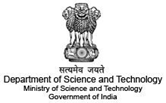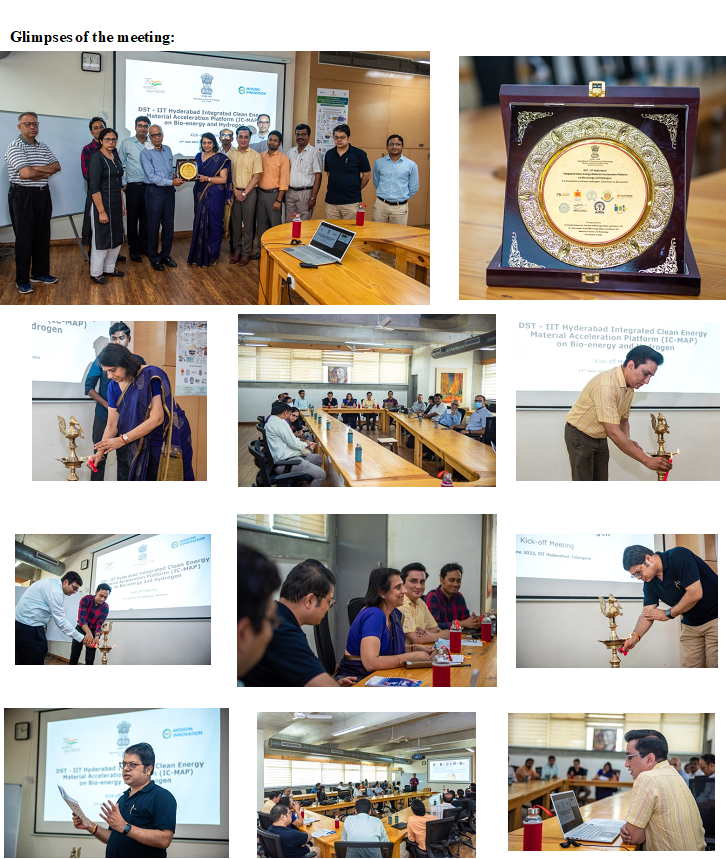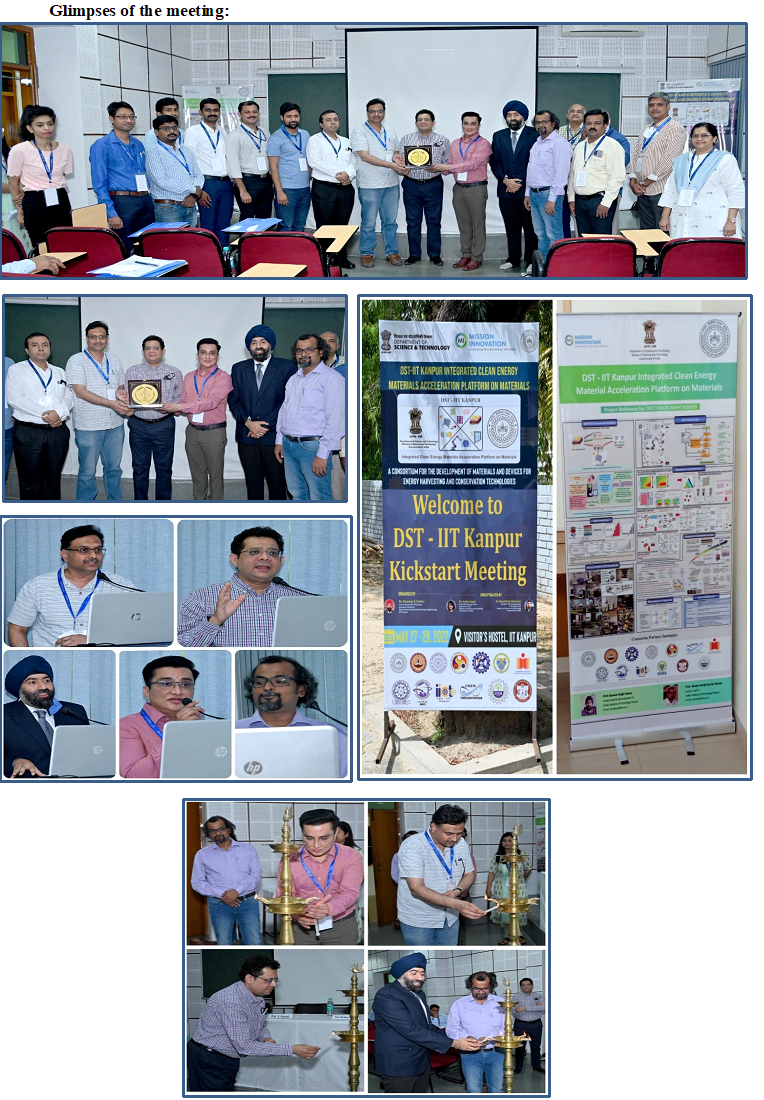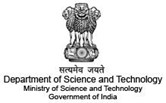

Report of the Kickstart Meeting
DST- IISER TVM Integrated Clean Energy Materials Acceleration Platform
(IC-MAP) on Storage
6th May 2022
DST-IISER TVM consortium aims to accelerate the development of Solid-State Battery technology using Machine learning and Artificial Intelligence through automated processes.
The project kick-off meeting for the newly sanctioned DST-IISER TVM Integrated Clean Energy Material Acceleration Platform (IC-MAP) on storage was held on 6th May 2022 at IISER Thiruvananthapuram. The meeting was attended by the PIs from all the partnering institutes across the country, and academicians and other experts from IISER Thiruvananthapuram. The inaugural session was attended by more than 50 participants. Apart from the PIs, several other academicians including Prof. J. N. Moorthy, Director IISER TVM, Dr. Ranjith Krishna Pai, Scientist E, TMD EW, DST, Dr R. S. Swathi, Dean R&D, IISER TVM, Prof. S. Murty Srinivasulu, Deputy Director, IISER TVM, Dr. Manoj A. G. Namboothiry Assoc. Prof., IISER TVM, Dr. Joy Mitra, Head, School of Physics, IISER TVM, Dr. Mahesh Hariharan, Head, School of Chemistry, IISER TVM, Dr. Deepshikha Jaiswal Nagar, Asst. Prof., IISER TVM and several masters students, Ph.D. students and postdocs.
At the inaugural session, Dr M. M. Shaijumon, Admin PI, welcomed all the participants. This was followed by the inaugural address by Prof. J. N. Moorthy (Director, IISER TVM). In his speech, Prof. Moorthy detailed the importance of clean energy and accelerated development of efficient energy storage devices. Prof. Moorthy extended his wishes and support to the centre for all the activities. Dr. R. S. Swathi (Dean R&D and Consultancies) also promised all the support from the Research and development wing of IISER TVM for the establishment of the centre at IISER. Dr. Ranjith Krishna Pai (Scientist E, TMD EW, DST) gave a brief overview of the objectives and goals for the IC-MAP consortium, which include the possibility of AI, ML, modelling, synthetic screening and characterization to work together to accelerate the goal of material development for clean energy. He also discussed on the various funding opportunities from the department of Science & Technology, Govt. of India, in the field of development of materials for clean energy. Concluding remarks were given by Dr Yogesh Kumar Sharma (Lead PI, IIT Roorkee).
Post-inaugural session, the group photo was taken, followed by a separate meeting of the PIs was held. In the meeting, details of each task and the responsibilities of the PIs involved in each work package of the project were discussed. Work package-wise discussion was held and the respective WP leaders summarized the quarterly and yearly milestones. Details on the electrode/electrolyte materials design, device architectures, and the modes of sample exchange among the PIs were also covered. Topics related to the purchase of equipments and recruitment
of staff were also discussed. It was decided to conduct monthly meeting of the PIs on the last Wednesday of the month between 7.30 PM – 8.30 PM, and to record the minutes of the meeting. It was also decided to organize the first progress review meeting at IIT Roorkee. The Admin PI has reviewed the status of fund release across the partnering institutes. The meeting also gave ample opportunity for the students to interact with the PIs. The meeting was concluded with a lab tour to the central instrumentation facility at IISER Thiruvananthapuram. The team also visited the lab space allotted for the proposed centre. A group dinner was arranged in the evening.
Photographs taken during the project kick-off meeting of DST-IISER TVM IC-MAP on storage, held at IISER Thiruvananthapuram on 6th May 2022.
Report of the Kickstart Meeting
DST-IIT Hyderabad Integrated Clean Energy Materials Acceleration Platform
(IC-MAP) on Bioenergy and Hydrogen
17th June 2022
Preamble
DST has sanctioned financial support for the project “DST-Bioenergy & H2 MAP” dated March 16th, 2022 vide DST/TMD/IC-MAP/2K20/02 (C). This project was designed to be led by a consortium of ten different PIs. Dr. Sayak Banerjee, IIT Hyderabad and Dr. Arnab Dutta, IIT Bombay have been selected for spearheading the project as admin-PI and lead-PI, respectively. Following the release of first installment of funding, the research was initiated in every front of this project. Following the suggestions from DST, a kick off meeting was planned at admin. institute IIT Hyderabad to discuss the aim of this new initiative and synchronize the efforts of the different verticals of the project.
Participants
All the PIs of the project (as mentioned below) joined this meeting in person along with Dr. Anita Gupta (Head, Technology Mission Division, DST) and Dr. Ranjith Pai (Director, Technology Mission Division, DST).
PI List
| IIT Hyderabad |
| IIT Bombay |
| The Neotia University |
| Alagappa University |
| Manipal Institute of Technology |
| IIT Kanpur |
| IISER Thiruvananthapuram |
| IIT Kharagpur |
| IIT Kanpur |
| CSIR-IICT Hyderabad |
Proceedings
The meeting started with the welcome remarks from Dr. Sayak Banerjee. Next, all the PIs introduced themselves, followed by an overview of the project by Dr. Arnab Dutta. Dr. Tarun K. Panda, Dean, IR, IITH, joined this event and ensured the full support from the institute for this project in the next three years. Dr. Anita Gupta (Head, Technology Mission Division, DST) provided her remarks on this new IC-MAP initiative by DST. Then, Dr. Ranjith Pai detailed the potential avenue of AI and ML-driven research. This segment of the program was concluded with the citation ceremony led by Dr. Gupta and Dr. Pai, along with all the PIs. Following this Dr. Pai and DST project staff members conducted a tour of the proposed Bioenergy and Hydrogen IC-MAP centre and lab at IIT Hyderabad.
In the next session, the PIs participated in interactive discussions on all the work projects mentioned below.
Work project 1. Thermochemical process of H2 production from biomass. Dr. Ghosh led the discussion on the identification of lead candidates for catalysts for facile production of H2 from biomass. Dr. Dutta and Banerjee provided their updates on designing synthetic catalysts and reactor setup, respectively. Dr. Reddi and Singh provided their findings on AI/ML-driven catalyst search and the shortlisted parameters of their algorithms.
Work project 2. Biochemical and photochemical H2 production from biomass. Dr. Arun initiated the biochemical H2 production discussion as he depicted the initial results in this section. The selection of promising bacterial strains along with compatible synthetic electrocatalysts for the generation of biohybrid SMFC and MEC were discussed. Dr. Reddi, Singh, and Dutta provided the necessary inputs in this aspect. The progress in photochemical research was highlighted by Dr. Murthy, Reddi, and Singh. Here, the potential combinations of photo reactive catalysts and their deployment in prototype design were explored.
Work project 3. H2 purification system. Dr. Singh and Dutta discussed the possible pathways of assembling an H2 purification unit with the H2 production systems mentioned in Work projects 1 & 2.
Work project 4. H2 storage unit development. Dr. Subramaniam and Jaiswal discussed the absorption and adsorption-based methodologies for hydrogen storage. Their initial results on materials development and their possible applications were mentioned. Dr. Singh and Reddi showcased the AI/ML-driven material search to expedite the search for optimized solutions for H2 storage. Dr. Neogi explained the detailed computational methods of hydrogen storage vessel design. The key parameters in this aspect were discussed to highlight the possible ways to drive this research forward.
Work project 5. AI/ML-support. Dr. Singh and Reddi outlined the methodologies employed in figuring out the potential candidates of catalytic materials for H2 production and storage. The detailed discussion among the experimentalists and computational scientists was fruitful as the stepwise trail of this research was established.
Establishing the executive committee
The following committee was established with the approval of all the associated PIs to facilitate the administrative decision making and internal proceedings.
| IIT Hyderabad |
| IIT Bombay |
| The Neotia University |
| Alagappa University |
| IIT Kanpur |
| IIT Kanpur |
The meeting was concluded with the vote of thanks to DST and the associated dignitaries and Dr. Sayak Banerjee and IITH organizing team for hosting this kick-off meeting.
Report of the Kickstart Meeting
DST-IIT Kanpur Integrated Clean Energy Materials Acceleration Platform
(IC-MAP) on Materials
27th – 28th May 2022
Funding Support:
- Department of Science and Technology, Government of India.
Venue:
- Visitor’s Hostel 1, Indian Institute of Technology, Kanpur, Uttar Pradesh, India
The project kick-off meeting for the newly sanctioned DST- IIT Kanpur Integrated Clean Material Acceleration Platform on Materials was held on 27th May 2022. The meeting started with the inaugural ceremony and the welcome remarks by Prof. Sandeep Verma and Prof. S. Ganesh were delivered. This was followed by a special address to the audience from Dr. Ranjith Krishna Pai.
Over the two days 27th -28th of May, 2022 at IIT Kanpur, the DST- IIT Kanpur IC MAP brought together distinguished scientists, eminent PIs, and other dignitaries from 13 elite institutes across India. Subsequently, a detailed presentation session started in which the respective PIs and scientists presented their ideas and work plans for this project for the tenure of 3 years.
The meeting started with a discussion on the goals and milestones of the project by Prof. Ranjit Nanda.
General goals and milestones: The platform will be utilized for three material modules, namely, perovskites (M1), small molecules (M2) and oxides (M3). These material modules will be employed to 4 different classes of devices, i.e., Perovskite solar cells, Solar thermal materials, Smart windows and Thermo-regulating tiles.
Then Prof. Nalwa proceeded to summarize the objectives, activities, work packages and the deliverables of the perovskite materials (M1) module, which is summarized below:
Perovskite solar cells: The perovskite subgroup will design and synthesize different classes of environmentally robust and efficient perovskite materials (3D, 2D, 2D-3D mixed and quantum dot perovskite) along with additive engineering and stable metal oxide transport layers. Finally, the device fabrication process and characterization will be automated at 3x MAP acceleration factor.
Subgroup goals: Our team is determined to achieve the device target with efficiency >10% for large area (16 in2 substrate) & >20% for small area (1 in2 substrate) and stability of 3 years for small area and 1 year for large area (Encapsulated), 50% RH and 25⁰C at 1 Sun condition.
Dr. Mani Karthik presented on the progress in Oxide materials module (M3) especially to tackle the challenges in the area of solar thermal energy harvesting:
Solar thermal: The solar thermal subgroup is focused on the development of solar thermal materials (based on nano-spinel, oxide materials & PCMs) and design of prototype receiver tubes and small-scale prototype hybrid (latent and sensible) thermal energy storage system for building heating and cooling applications.
Subgroup goals: The proposed device target of this subgroup is to build a
- Solar Receiver Tube:
- 1m receiver tube: (10-50mm OD) with AR-coated cover glass tube.
- Optical efficiency: 50-55%.
- Operational temperature: 100 to 400⁰C.
- Thermal storage System:
- 1 kWh thermal storage capacity.
- Thermal conductivity: =1 W/m.K.
- Operational Stability: -40⁰C to 500⁰C.
- Efficiency: >20% higher than conventional TES system.
Dr. Sreejith Shankar presented on how oxide (M3) and small molecule (M2) modules will facilitate the development of smart windows which is summarized below:
Smart window: The smart window subgroup will design, fabricate, screen, and analyse performance of smart windows with functional materials (electrochromic/ photochromic/ thermochromic) and fabricate small scale (5 cm × 5 cm) and large scale (1in × 1 in) prototype smart windows.
Subgroup goals:
- Operational stability at 10-50⁰C, cycling stability up to 25,000 cycles.
- Reduction in indoor temperature by = 3⁰C.
- Indoor energy savings up to 20-30%.
Dr. Neha Hebalkar discussed the way forward for using the group’s expertise on oxide materials for the fabrication of thermos-regulating tiles and the key points are highlighted below:
Thermo-regulating tiles: This group will synthesize and develop material (based on PCM & silica aerogel) for thermal regulation as well as design and fabricate thermo-regulating tiles, both small (10 cm × 10 cm) and large scale based on optimized designs, and their performance testing.
Subgroup goals:
- Applicable to indoor side of wall or within the new construction of building.
- Working life: at least 10 years.
- Capable of converting temperature least by 5⁰C between hot side and cold side of the building wall.
After the presentation session, the team headed toward our well-equipped lab facilities. The attendees were given a tour of our solar cell fabrication and characterization facilities in Western labs, followed by central advanced characterization facilities housed in ACMS, and then the Nano imaging center, and the tour was concluded by a visit to the Sustainable energy department where the newly established battery lab and Postgraduate teaching labs were showcased. Then, the meeting was concluded with a technical discussion session on “prevalent challenges plaguing the field of perovskite solar cells” amongst the attendees.
On the second day, 28th May, the event started again with a detailed PIs discussion session. Firstly, the team established an executive committee inclusive of Lead PI and administrative PI with representation from each of the subgroups. Then, the four subgroups, namely, Perovskite solar cells, smart windows, thermo-regulating tiles, and solar thermal, had detailed discussion sessions to lay out the plan of the project. The entire team deliberated on the schedule of progress meetings which will be staggered at periodic intervals, to evaluate the status of the deliverables.
The meeting was concluded on 28th May at 2 PM with intermodular discussions (discussion between subgroups) to strive for collaboration.
Attendees:
- Invited Delegates
1. Dr. Ranjith Krishna Pai, Scientist E, TMD EWO, DST
2. Prof. S. Ganesh, Deputy Director, IIT Kanpur
3. Prof. Sandeep Verma, Secretary, SERB, INDIA
4. Dr. K. Dhamodaran Santhanagopalan, Amrita University
- PIs of DST-IIT Kanpur Materials MAP
1. Dr. Birabar Ranjit K. Nanda, IIT Madras
2. Dr. Abhijit Hazarika , CSIR-IICT Hyderabad
3. Dr. Abhishek Tiwari, IIT Roorkee
4. Dr. Ankush Bag, IIT Guwahati
5. Dr. Melepurath Deepa, IIT Hyderabad
6. Dr. J. Krishnaiah, IIIT Kurnool
7. Dr. Manoj A G Namboothiry, IISER TVM
8. Dr. Neha Hebalkar, ARCI Hyderabad
9. Dr. Rupam Bhaduri, DSU Bengaluru
10. Dr. Sarthak Mandal, NIT Tiruchirappalli
11. Dr. Suraj Soman, CSIR-NIIST
12. Dr. Mani Karthik,(on behalf of Dr. S. Sakthivel) ARCI Hyderabad
13. Dr. Sreejith Shankar P., CSIR-NIIST
14. Dr. Kanwar S. Nalwa, IIT Kanpur











 ,
,  ,
,  ,
,  ,
, 



















